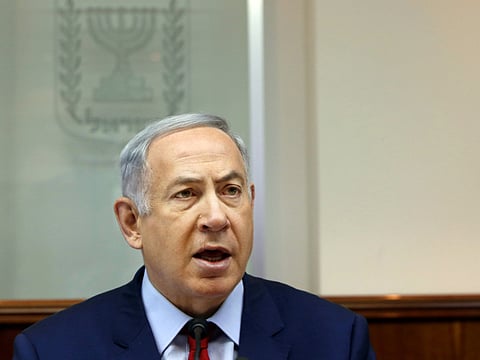No end in sight to Israeli occupation
Recent events in the Middle East, Europe and the United States only project a more gloomy picture of the future

The surprise partial withdrawal of Russian troops from Syria, ordered by Russian President Vladimir Putin, after restoring the stance of Syrian President Bashar Al Assad, has encouraged many to see whether this move would encourage Israeli Prime Minister Benjamin Netanyahu to do the same. But this momentary hopefulness does not appear to be everlasting since recent events in the Middle East, Europe and the United States have not been encouraging.
All the leading American presidential candidates — Hillary Clinton, a Democrat, and Donald Trump, a Republican — and their runners-up have pledged allegiance to Israel. Moreover, US Vice-President Joe Biden, who has just returned from a visit to Israel, and other top American lawmakers, will be joining Hillary and Trump at the upcoming annual conference of the pro-Israel lobby, known as the American Israel Public Affairs Committee, in support of Israel. The conference is scheduled to be held on March 22 in Washington, D.C.
Biden was also described by the Jewish Telegraphic Agency (JTA) as “perhaps the Obama administration’s figure closest to Israel and the pro-Israel lobby” who also served as “the go-to official to calm the waters closest to Israel during the many periods of tension” between President Barack Obama and the Israeli prime minister.
Israel was seemingly unappreciative of what the French government has been trying to do to find a Palestinian-Israeli peace settlement. Its point was that it was struggling to “understand the logic” of the French peace initiative despite a meeting this week between France’s envoy, Pierre Vimont, and Isarel’s Foreign Ministry Director-General Dore Gold.
However, Palestinian President Mahmoud Abbas has welcomed the French initiative and the international support it would bring, but Netanyahu has voiced opposition and insisted on direct talks between the parties without pre-conditions and wants less international involvement.
An unidentified French diplomat said the initiative was required because of the risk of a “powder keg” exploding. Israel, according to Reuters, was particularly worried by the decision of former French Foreign Minister Laurent Fabius to recognise a Palestinian state automatically if the initiative failed, but this has since been toned down.
Having twice failed to achieve Israel-Palestinian peace, Ori Lewis of Reuters wrote this week that the Obama administration was discussing ways to help preserve the prospects of an increasingly threatened two-state solution. US Secretary of State John Kerry revealed last Sunday that the US was looking for a way to break the deadlock between Israel and the Palestinians, acknowledging that by itself it could not find a solution, and the Obama administration wants to preserve the prospect of a two-state solution.
Time is running short for the establishment of an honourable Palestinian State on June 6, 2017, the 50th anniversary of the Six Day War, which ended with Israel conquering the West Bank and the Gaza Strip as well as the Sinai Peninsula and the Golan Heights, a region bordering Syria.
Uri Savir, writing in Al Monitor, said: “The current Palestinian despair is unprecedented and is a function of the unchallenged Israeli [colony] expansion. Palestinians believe that with every day that goes by, reaching statehood becomes a greater challenge, given the ongoing increase in the number of Israelis living east of the Green Line [which separates the West Bank from Israel]. In addition, they are gravely disappointed with the Arab world ...
“They have no hope that US President Barack Obama, in his last year in office, will act in any concrete way, and they consider with great criticism and apprehension the American election campaigns ... Hillary Clinton is viewed by the Palestinian leadership as someone who will endorse most of Israel’s positions while giving lip service to a two-state solution ... It is within this context that they have apparently decided to move on their own towards a unilateral declaration of statehood in June 2017 and to fight Israel for the fulfilment of their cause.”
Savir concluded: “Talking to senior Palestinian officials, one comes away with a sense that a great determination to move alone, both diplomatically and with violence, is currently emerging — 50 years of occupation seems more than they can tolerate.”
George S. Hishmeh is a Washington-based columnist. He can be contacted at ghishmeh@gulfnews.com



